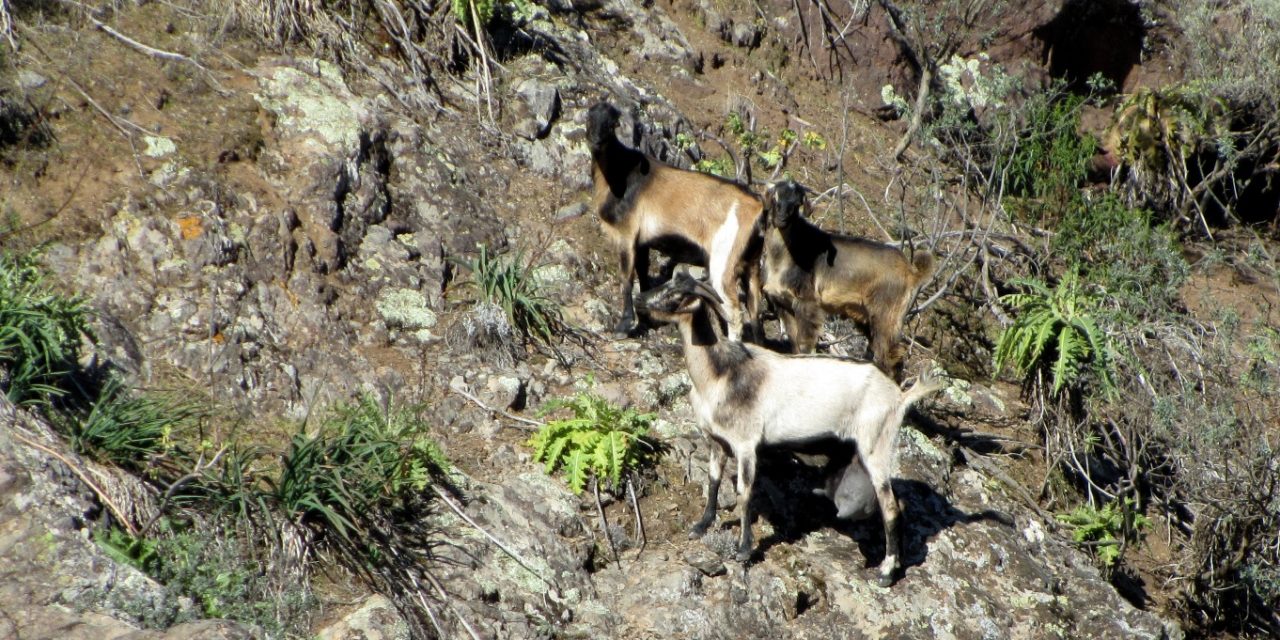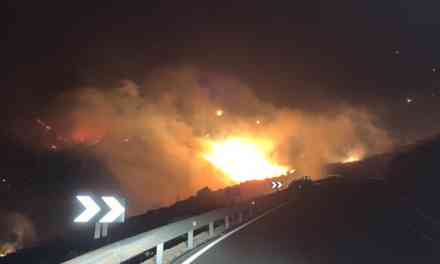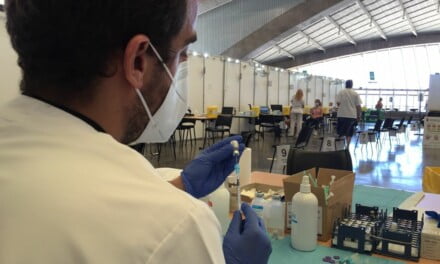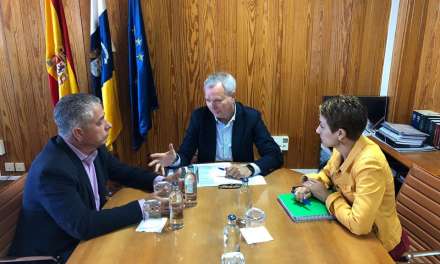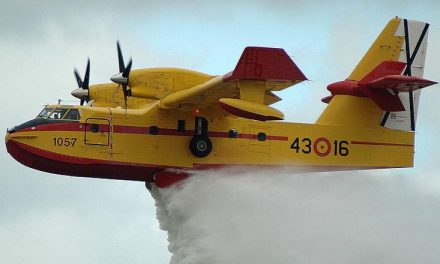According to La Provincia, the Canary Islands Government Vice-Ministry of the Environment of the of the is preparing a decree project that will include production animals (cows, pigs, goats, horses and donkeys) among big game species authorised for hunting.
Article 2 of the text, whose public exhibition process ended on the 13th of November, says “wild game animals are considered [to include] feral production animals”, which “have been abandoned after the closure of their farm and that” lack identification or apparent signs of ownership or possession by a person”.
The proposed law covers various methods of hunting and stalking and the use of rifle and bow, of up to 45 pounds of power or more, being allowed as weapons. In addition dogs are also allowed.
The vice-minister, Blanca Pérez, explained that the proliferation of this type of animal in the wild “has become a problem of the first order” due to the negative repercussions they have on the ecosystem and the “damage and losses” caused to farmers and farming.
“More humanity and less savagery” is the motto being used by animal protection organizations in the Canary Islands for their latest campaign launched yesterday against a regional government decree that could allow for the hunting of cows, pigs, goats, horses and donkeys that live in wild conditions.
The proposed text for the law, which has caused a huge stir among animal advocates, has also stirred up the hunters, who say they stand against this “barbarism”, saying that in their opinion that the initiative has nothing to do with hunting activity and in fact runs against the objectives of hunting legislation on the Islands. Both groups agree that this latest proposal signifies dereliction of duty in the control and supervision of these populations, a problem that has been increasing and that has occurred in the territory for decades.
The draft decree, prepared by the Deputy Ministry of the Environment, proposes to include feral ‘production animals’ among the allowed big game species. The text, which has already passed its public exhibition phase, refers to fair game including animals normally “kept, fattened or bred for the production of food or other products of animal origin” if for any reason they have been abandoned or are lost and live the wild in the natural environment. The Executive alleges that there is a need to adopt “drastic measures” in order to conserve the ecosystem.
 Coordinator of the Canary Solidarity Network against Animal Cruelty, Abel Román, argues that all wild animals “deserve dignified treatment” and should not simply be done away with even if it is a “clean shot”. Although he admits that there may be a problem in the wild, he advocates carrying out alternative methods such as tranquilizing darts and transferring these animals to shelters or, in the case of sheep and goats, to shepherds who can pick them up and introduce them into herds .
Coordinator of the Canary Solidarity Network against Animal Cruelty, Abel Román, argues that all wild animals “deserve dignified treatment” and should not simply be done away with even if it is a “clean shot”. Although he admits that there may be a problem in the wild, he advocates carrying out alternative methods such as tranquilizing darts and transferring these animals to shelters or, in the case of sheep and goats, to shepherds who can pick them up and introduce them into herds .
In his opinion, this project is a “scandal”, because “the animal is treated as disposable organic waste” and accused the Executive of not having a “conscience” for animal welfare while pretending to solve the possible damage to the ecosystem. “That’s savagery, there are other more humane measures that do not cause gratuitous suffering to animals,” he said.
 President of the Canarian Federation of Animal and Plant Protective Associations, Adriana Naranjo, declared the proposal “nonsense”. “This is happening because of the negligence of the administration that has provided subsidies to farmers, but without control measures and so there are animals that have ended up dumped in ravines and abandoned in the countryside, where they have been reproducing and now the situation is overwhelming”. He criticised the “lack of action” from the Executive, despite the warnings.
President of the Canarian Federation of Animal and Plant Protective Associations, Adriana Naranjo, declared the proposal “nonsense”. “This is happening because of the negligence of the administration that has provided subsidies to farmers, but without control measures and so there are animals that have ended up dumped in ravines and abandoned in the countryside, where they have been reproducing and now the situation is overwhelming”. He criticised the “lack of action” from the Executive, despite the warnings.
Amanda Luis, of the Animalist Party Against Animal Mistreatment on the Islands, finds it “tremendous that the solution to a problem of overpopulation and maintaining a supposed ecological balance always involves the killing of animals”, even though Pacma delivereda report in April to the Government with “non-bloody” actions for the control of wild animals.
The platform No a la Caza [No to the hunt] has been fighting for several years to eradicate this activity, estimating that “it has no basis because nowadays we do not hunt to survive, but as a sport and fun at the expense of the suffering of animals”, according to the coordinator in Tenerife, María García, who claims there are other “more civilized” ways to solve the problem, such as capturing feral animals and, “if their reproduction harms the ecosystem [ensuring] that sterilisation is performed, as is done in other countries.”
The associations of hunters were very critical also of this decree. In the opinion of the president of the Hunters Society of Gran Canaria-La Decana, Rodolfo Marrero, what the Executive intends “is unfeasible” because the Hunting Law of the Canary Islands, of June 1998, states that its fundamental objective is to promote, protect, conserve and take advantage of the hunting resources in an orderly manner, “while what the government is now trying to do is eradicate and that is out of context with regard to the sustainability that the hunter seeks”.
He sees “barbarism” in the Government’s proposal regarding feral production animals. “There has been an abandonment by the Executive for years and now this problem has arisen, but we hunters will not solve it, because we already have enough problems with small game to get involved in something that is out of context with respect to the law that we currently have, ” he said.
Similarly, the president of the Canarian Association of Hunting Entities, Juan Miguel Sanchez, defended the position that hunting activity has nothing to do with what the Government is proposing and, in fact, has presented formal objections to the decree. The organization, which includes 1,600 members and eight associations, does not consider feral production animals as major game species and are against their being declared a hunting species. “This group does not want their activity to be involved in the control of these animals through hunting,” he said.
______________________________
Feral goats have an economic cost as well as endangering biodiversity, say Cabildo & EU
Meanwhile, the European Commission (EC) has recently extended a project aimed at the Recovery of endemic forests of Juniperus spp , and its flora and fauna, in the Special Natural Reserve of Güigüí called the Life+ Guiguy project until December 2018 so that the Cabildo de Gran Canaria can eradicate the problem of the feral goats within the Special Nature Reserve of Güi-Güí.
This was explained by the Minister of Environment of the insular corporation, Miguel Ángel Rodríguez, and the director of the Life+ Guguy project, Gustavo Viera, who revealed that the Cabildo is assuming the economic cost of the extension of the EC, to the tune of about €100,000.
The Life+ Guguy project, was born four years ago and, initially, sought to repopulate the protected natural reserve with some 25,000 trees at different altitudes and habitats, from pine trees to cedars, junipers and thermophiles in the lowest areas.
The survival rates of the reforestation is about 70 percent and next December all the plants will be protected with meshes to avoid them becoming food for wild goats and sheep, although barely 2% of feral livestock are thought to actually consume them.
Rodríguez has specified that the population of Cedars on Gran Canaria has been exponentially multiplied by going from the 48 specimens registered at the beginning of the Life+ project to more than a thousand that today helping to “re-green the Güi-Güí hills”.

